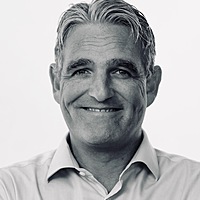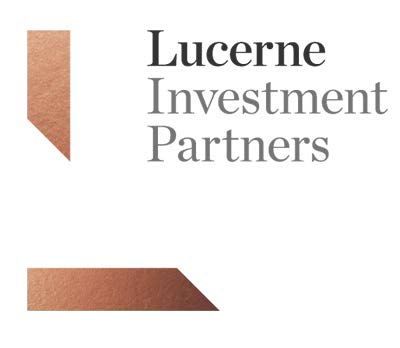Here is what to look for when selecting a winning growth fund

If you really want to know something, wrote the late novelist Saul Bellow, go to the people who know and get them talking. Well "duh", you might say, I dearly hope he did more than that to win his Nobel. But the simple axiom is also the foundation of all good journalism and education, and at the heart of the Livewire mission: Find the people who know investing, get them talking, and share the knowledge.
Take this wire for instance. We asked our guest Anthony Murphy portfolio manager at Lucerne Investment Partners, what he looks at when selecting an investment manager and - bang - he provided a blueprint: A company must be small and nimble to remain flexible when the market was volatile; managers will have skin in the game; there must be an opportunity for an early entry point:
We like to be there before the institutions. We like to be there before they've won all their awards. So we're happy to be early to the party, but we certainly don't want to be last to leave. So combining all those sort of key criteria together is what we go through when selecting a manager.
In this wire, and video below (and the two to follow) Murphy talks us through the Lucerne team's process when searching for quality investment products and bespoke portfolios for high net worth investors,
He also drills into why HEAL Partners, "an early to mid-stage follow-on fund and growth acceleration investment vehicle focusing on Health, Education and Lifestyle sectors" presents such a particularly contemporary opportunity by exploring some business case studies HEAL is backing, including Edge Early Learning, a tattoo removal business call Removery, and the largest Montessori education network in the US.


This transcript has been edited for length and clarity
What are investors looking for when they put their money with Lucerne?
When we invest capital, we back people. And I think you back people in every facet of life, particularly when you have an employee-employer relationship or when you have a service provider. And why you keep going back to that same place every morning and getting the same coffee is because you're dealing with that person and you're backing them. That becomes incredibly important in the investment world.
And so if we look at the calibre of the individuals that have got behind HEAL, most of them have already been incredibly successful in their working lives.
In fact, I'll go as far as saying they don't even need to do HEAL, but they're doing this because they're opening up an investment club for individuals who want to come and co-invest alongside the founding partners. And if that's not enough for us or our investors out there, or the audience, I'd go further than that and say some of your viewers out there would know a group called Tiger Funds Management run by a fellow called Julian Robinson, very, very famous investor around the world.
And you could argue Tiger Funds Management would be the most successful hedge fund in the globe for the past 30 years. Julian has actually personally put capital into some of HEAL Partners' investments as well, in particular Crimson Education, where he backed an individual that used to work for him that founded that business.
So when we're looking at HEAL, yes, we're looking at the right people to back just from a portfolio management perspective. But if you look at their investment track record in terms of finding businesses early on, scaling them, growing them, and then selling them at very high multiples down the track at a much higher rate than what they invested into those businesses initially.
And that's now being vindicated by the likes of Julian Robinson and Elliott Management for fund too. We just think they're a quality outfit as a result of that. And they've been vindicated around the globe.
How do you marry up capital with the right investment expertise?
If you think about investing and take that approach to another industry, let's say the medical industry, if you go to your GP and get a health checkup, and your GP requires you to go off to different specialists for different parts of your body, you go to those specialists. That's how we see Lucerne effectively is that GP. And then when we look to allocate capital, we look to allocate to specific specialists instead of pretending that we can do that all ourselves.
So we find that for our investors, it's better off spending a lot of time and research on doing due diligence on experts within their respective fields. And the investment universe, it's a very complex beast at the best of times.
As a result, we do feel that partnering with capital with experts is the most appropriate way to go from that perspective, everything from bonds to fixed income to private debt, to equities, to digital assets, which has become a big theme in the market.
With that thematic in particular, you would argue you need to be with experts within that space.
It's such a new thematic in the market, and we don't want to pretend for one moment that we are experts, but we think we're good at picking people and good at picking managers that are at the forefront of their respective industries.
What do you look for in an investment manager?
When selecting a manager, one thing we look for is size.
I think in financial services, a big thing that people discount is size. And what I mean by that, most industries around the world, the larger you get, the more pricing power you have, the more market share you have. Think about Nike from a sports apparel perspective. They own market share. They own significant market share, more than 50% globally.
When you think about financial services, the larger you become in this space, the more inflexible your mandate becomes.
If you think about it from an analogy of a ship turning, the larger a fund becomes the more they become like the QE2. The more smaller and nimbler fund can remain, they're more like a speed boat or a jet ski. And we prefer the latter when allocating capital, because markets can be volatile. They can move quickly. So we want flexibility within our managers.
And so probably that's the first key point, that size actually does matter in funds management to the lower side.
We want managers to remain small and nimble, and we want them to commit to managing a finite pool of capital. Often, what we've seen over time is some of these managers, their performance is great in the early years, then potentially greed can come into that. And so they try and run more and more capital and then that inflexibility comes into place.
So for us, flexibility is important. How do you control flexibility by the size of capital that you're committed to managing? In addition to that, another really important point for us is alignment. We want to see skin in the game.
Most of our managers are primarily remunerated on performance, so they need to perform and to be paid well. But furthermore, we want a good understanding of how much of their own personal wealth outside of their family home they have invested in their strategies as well. And so we look at that and we look for alignment.
And you want to see a track record. Quite often, like in many issues around the world, when a business starts up, that individual starting that business is generally spent more time or has spent time previously in say a larger firm or a conglomerate and they felt that they can better themselves.
And that's what you see in funds management as well. Often some of these individuals that are very good fund managers have cut their teeth in larger organisations, so we can get a good feel of track record before we back these managers.
Probably the final point is we want to be early. In funds management, quite often, a number of investors are waiting for a fund to be rated or institutions rather are waiting for a three year track record. And there's enough theory out there that shows that often fund managers and investors as a whole actually have the best performance in their earlier years when they're small and nimble, coming back to that point.
So we like to be there before the institutions. We like to be there before they've won all their awards. So we're happy to be early to the party, but we certainly don't want to be last to leave. So combining all those sort of key criteria together is what we go through when selecting a manager.
How do HEAL Partners fit your investment thesis?
What really attracted us to HEAL was the personnel behind HEAL, that the founders and partners had all invested with each other for quite a period of time. They'd all been incredibly successful in their respective lines of work. And they almost brought together this investment club to start HEAL Partners.
They were committed to staying small, part of our investment thesis. They recently hard closed their first fund at 145 million AUS, which is incredibly small for a private equity fund. So we knew they could be flexible and that really attracted us to the portfolio.
So it's the team, and the size of the portfolio, but probably the most important point with HEAL was that we already had a really good line of sight to what that portfolio was going to look like.
So they already had existing investments within the portfolio before we invested. We knew that the founding partner team often would take board seats or already had significant personal wealth invested in some of these companies.
Again, with that alignment thesis. We knew they were highly aligned with these investments. We knew they had a lot of control over these investments, know-how, and also say with these companies.
So those were the key points that attracted us to HEAL and that allowed our investors to come in at what we felt like was really a significant discount to what we felt that underlying portfolio was actually going to be like in say 12 to 18 months' time, which is a short time in private equity land. And that thesis has absolutely played out.
A different type of wealth management
Lucerne is Australia’s pre-eminent independent investment group, providing high net worth investors access to a family office-style service. They allocate to any investment that meets client objectives and they invest alongside you. Click ‘CONTACT’ below to talk with them or visit their website here.
2 funds mentioned
1 contributor mentioned

Matt Buchanan is a former Head of Content at Livewire Markets. Matt is an avid investor and a big fan of the Livewire community, which he first joined in 2017.
Expertise

Matt Buchanan is a former Head of Content at Livewire Markets. Matt is an avid investor and a big fan of the Livewire community, which he first joined in 2017.
